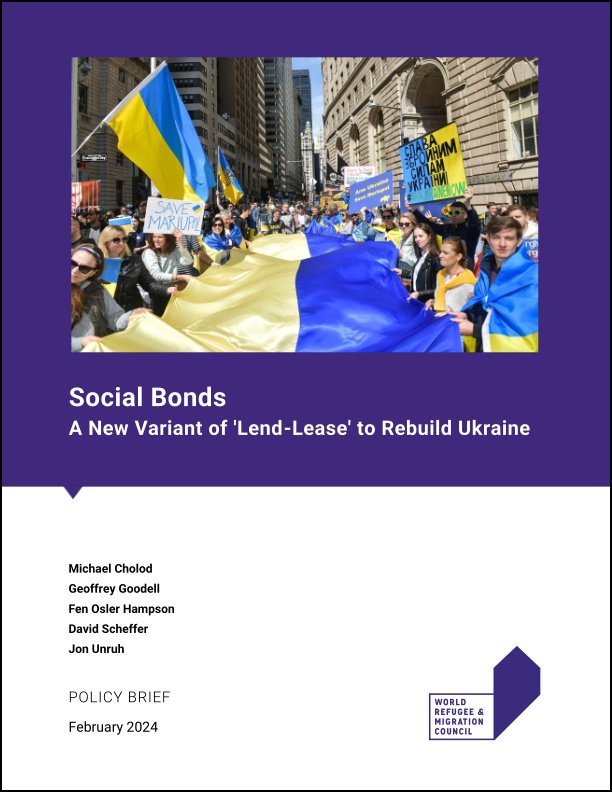G7 countries are actively seeking ways to hold Russia accountable for its illegal invasion of Ukraine and pay for damages and costs of reconstruction. Many proposals have been discussed, from outright confiscation and repurposing of Russian assets to using the frozen assets to generate windfall interest revenues.
The World Refugee & Migration Council has actively developed and advocated for mechanisms intended to punish grand corruption, especially where it has led to forced displacement, as is the case for more than 7.5 million Ukrainians. Read more about our proposed anti-corruption policy responses and mechanisms.
The bond-lien guarantee mechanism proposed in this policy brief has clear benefits:
- Instead of confiscating Russian assets, Western governments leave those assets intact and use them as security for loans of equal value to be advanced immediately to Ukraine.
- Ukraine, in turn, assigns to the lenders the value of its loans and its right to eventually receive reparations from Russia for the damage caused by its aggression.
- If Russia fails or refuses to pay reparations, Western lenders could have recourse to the frozen Russian assets to satisfy their loans via a first-priority lien that would be applied to the frozen Russian funds.
- A lien is an encumbrance, but not confiscation, and would only be applied if Russia fails to fulfil its obligation.
- There are well-established international processes to deal with reparations, and Western courts are positioned to grant a lien to recognized claim holders.
For more information, read:
Social Bonds: A New Variant of ‘Lend-Lease’ to Rebuild Ukraine
By Michael Cholod, Geoffrey Goodell, Fen Osler Hampson, David Scheffer and Jon Unruh

